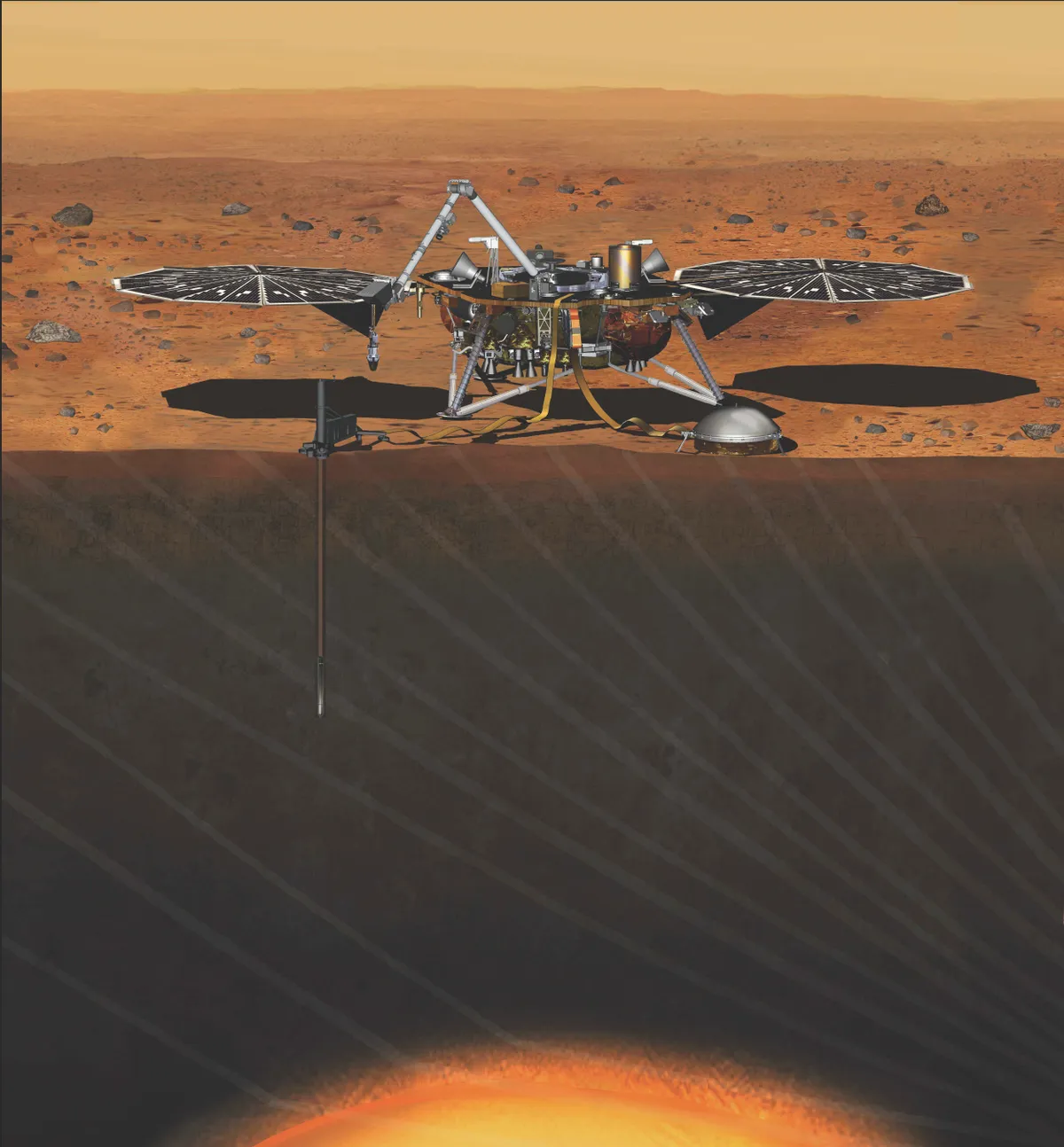At the end of July, scientists from the European Space Agency (ESA) announced what’s arguably one of the biggest scientific breakthroughs of 2018 so far: there is liquid water on Mars. The discovery of an underwater lake below a glacier in Mars’s south polar region was made using the MARSIS (Mars Advanced Radar for Subsurface and Ionosphere Sounding) instrument on ESA’s Mars Express probe, which has been in orbit around the Red Planet since December 2003.
While the surface of Mars is far too cold for water to exist in liquid form, the covering of ice at the poles, which can be up to 2km thick, acts like an igloo, trapping what little heat Mars emits due to the decay of radioactive elements within its core. If the water in question is also highly salty, as it’s believed to be, it could therefore persist in liquid form, as salty water has a lower freezing point.
Mars Express project scientist Dmitri Titov, who’s been involved in the mission since its earliest days, was upbeat about the discovery. “MARSIS has told us lots of other interesting things,” he said. “Its subsurface sounding of the entire planet has revealed the many layers below the surface, and its radar is also very efficient at sounding the ionosphere [upper atmosphere], so it’s really a very multidisciplinary operation. But one of the primary goals of the mission, like a torch on the far horizon, was always to discover water.”
Scientists have known for a long time that there was water on the Martian surface in the distant past, due to the erosion patterns in the rock and the existence of hydrated materials. The presence of water ice today was confirmed for sure 10 years ago by NASA’s Phoenix lander, but this is the first time that liquid water has been discovered there.

The discovery was made possible by what was effectively a firmware upgrade to MARSIS, so that instead of studying the whole planetary surface in standard resolution, it sent back high-resolution data from a specific area. To do this, the team had to bypass some of the onboard data processing, which as Titov explains “was doing some kind of averaging and calculations onboard. But now they said no, let’s just download all of the data and do all the processing here on the ground.”
Is there life on Mars?
The underwater lake found by MARSIS is similar in many ways to Lake Vostok, the lake that in 1973 was discovered lying under four kilometres of Antarctic ice here on Earth. Given that there are widely believed to be unknown microbes dwelling in Lake Vostok, what does the MARSIS discovery say about the prospects for finding life on Mars?
“I think that yes, now we have some potential for Martian life,” said Titov. “Simply because water is there and water is one of the major ingredients. It’s also important that this water is hidden under a 1.5 to 2km layer of ice, which protects it from the intensive UV radiation from the Sun. But getting there and drilling through the ice is a huge challenge, so it will be some time, possibly decades, before we know for sure.”
In the meantime, the MARSIS instrument will continue to look for more subsurface pockets of water. But the discovery of just one has clearly made Titov and his team extremely happy.
“For us, this discovery demonstrates that despite the mission being quite old now, despite there being new missions there, it still it has the potential for new discoveries, for collecting new data,” he told us. “So it’s very good news for the Mars Express team.”

The man who gets tosay ‘I told you so’
Mars Express’s discovery is bound to have made the Planetary Science Institute’s Simon Clifford smile – because he predicted the existence of such lakes back in 1987
“Back in the 80s, we knew liquid water existed below Earth’s polar ice sheets,” he told BBC Focus. “On Mars, we knew the surface temperature, we had some idea of the thickness of the polar caps, and we knew that Mars, like Earth, generates internal heat. So it was just a case of putting all those elements together. Of course, 30 years ago people weren’t yet used to thinking of Mars as a water-rich planet, so there was some resistance to the idea at first. But thanks to MARSIS, we now have
This is an extract from issue 326 of BBC Focus magazine.
Subscribe and get the full article delivered to your door, or download the BBC Focus app to read it on your smartphone or tablet. Find out more